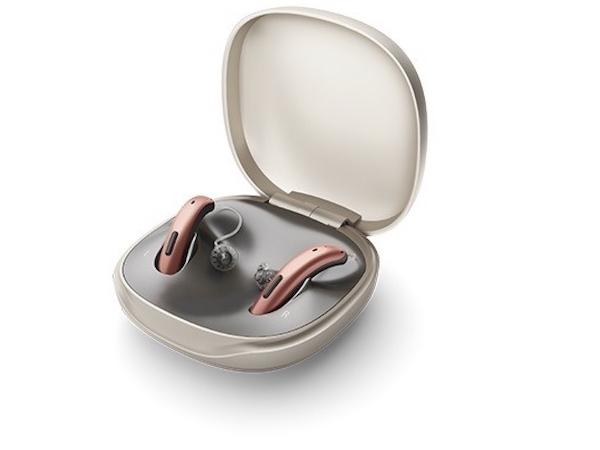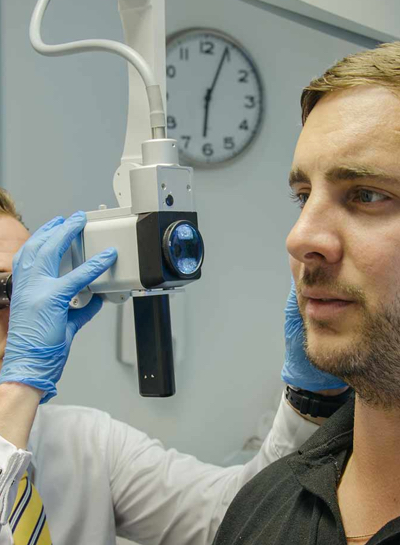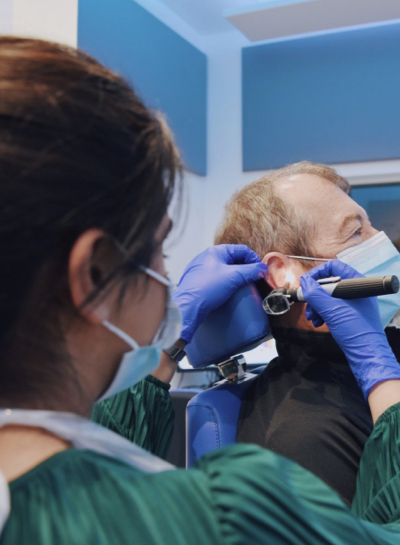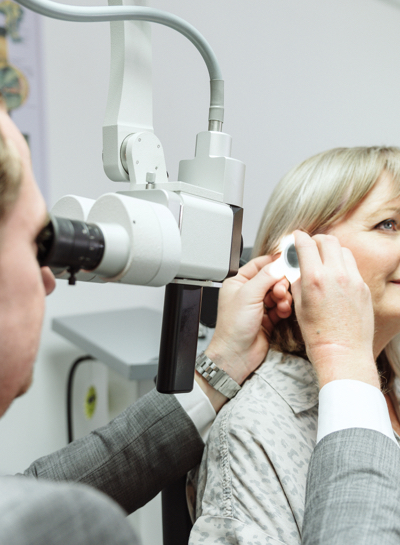How to effectively manage Tinnitus
4 Min read
23rd Mar 2023
How to effectively manage Tinnitus
As a hearing centre, we frequently see patients who suffer from tinnitus, a condition that affects millions of people in the UK. Tinnitus is a condition that causes ringing, buzzing, hissing or other sounds in the ears that can be persistent or intermittent and can vary in loudness and pitch. For many, it can be a debilitating condition that interferes with their quality of life.
Although tinnitus cannot be cured, thankfully it can be treated so that the symptoms are lessened. Read on to find out more.
What Causes Tinnitus?
There are several factors that can contribute to the development of tinnitus. These include exposure to loud noise, high blood pressure, stress and anxiety, and underlying hearing loss.
More than 200 medicines, including aspirin, can also cause tinnitus. If you have tinnitus and you take medicine, ask your doctor or pharmacist whether your medicine could be the cause.
Symptoms of Tinnitus
If you suffer from tinnitus, you know how frustrating and distressing it can be. The constant noise in your ears can make it difficult to concentrate, sleep, and even communicate with others. It’s a condition that can leave you feeling isolated and alone.
If you are experiencing tinnitus, you may be hearing a ringing or buzzing sound in your ears. You may also hear a hissing, whistling, or clicking sound. Some people experience it constantly while others may only experience it occasionally.
Tinnitus can also be more noticeable in quiet environments, such as when you are trying to sleep at night. For some people, it can be so severe that it interferes with their ability to hear and communicate.
Tinnitus Statistics in the UK
Nearly everyone has experienced tinnitus at one time or another. For most, it is a passing incident. However, for some, it can be a constant companion.
According to the British Tinnitus Association, approximately 10% of the population in the UK experiences tinnitus. That equates to approximately six million people. Of those people, approximately 600,000 experience tinnitus that is severe enough to impact their quality of life.
Managing Tinnitus
While there is currently no cure for tinnitus, there are several ways that it can be managed. One of the most effective ways to manage tinnitus is to seek treatment for any underlying conditions that may be contributing to the problem, such as hearing loss or high blood pressure. You may also benefit from sound therapy, which involves listening to sounds or music to distract you from the tinnitus.
Our job, and indeed our focus, is to break that cycle and give you time to recover. Using sound therapy, in combination with informed counselling and hearing aids, we can bring you significant relief. We will help you to change your emotional response to the tinnitus, helping to relieve the stress you feel.
How we create your personalised Tinnitus profile
Through these diagnostic tests, we can help direct our treatments towards your specific needs.
- Video-otoscopy – We will examine your ear canal and identify any obvious obstructions such as wax and any problems with the ear canal or eardrum.
- Ear wax removal – If we determine there is any ear wax blocking the ear canal, this will be removed easily and painlessly using micro-suction.
- High frequency pure tone audiometry – This is performed in our soundproof booth and is used to look at how sensitive your cochlea is to sounds.
- Tympanometry – We test your middle ear function where we can identify any negative pressure, congestion or fluid in the middle ear.
- Speech Discrimination in noise testing – We will test your ability to understand speech with and without background noise, performed in our soundproof room.
- Pitch Matching – This is to understand the frequency of your tinnitus which can help in tailoring therapies for yourself.
- Uncomfortable Loudness level testing – This is used to identify any sounds which could be causing you discomfort. (this is not always performed)
The Treatment Options For You
After your diagnostic tests, we will tailor the following therapies to your individual needs. This will help treat the symptoms of tinnitus you suffer from effectively.
Cognitive Behavioural Therapy – This is to alter your perception of tinnitus. Instead of focusing on the negative aspects, we will help you focus on the positive outcomes of coping with your ailment.
Hearing aids – These could help to control your tinnitus. Often the underlying cause of tinnitus is due to a hearing loss. We use hearing aids to correct the hearing loss and find that by increasing the ambient sounds, we have a dulling or total masking of the tinnitus.
Sound Therapy – Sound is used to partially/completely cover the tinnitus with the use of both wearable and/or non-wearable devices.
Biofeedback – This is a relaxation technique that tries to change your body’s reaction to stress. This encourages you to control involuntary bodily functions (such as pulse and muscle tension).
By seeking treatment for your tinnitus, you can improve your quality of life and regain control over your day-to-day activities. You can enjoy improved concentration, better sleep, and more fulfilling social interactions. Don’t let tinnitus control your life – take action and seek help today.
Contact us today to schedule a consultation.

Tom Dixon Director of Audiology
Share this article
Your Journey To Better Hearing
Related Articles

Join our Better Hearing Challenge
Rediscover Clear Conversations with Our Better Hearing Challenge Do you find yourself yearning to rediscover the joy of clear conversations? Are noisy environments making it challenging to hear speech, leaving…
3 Min read
3rd Jan 2024

Struggling with hearing aid batteries? We have the solution
Hearing aids are crucial for those experiencing hearing loss. They allow you to maintain your independence and continue enjoying the things you love. However, dealing with traditional hearing aid batteries…
2 Min read
18th Sep 2023

Our top 3 discreet, invisible hearing aids at Worcester and Stratford-upon-Avon
In the world of hearing aids, there are numerous options that cater to different needs, lifestyles, and personal preferences. If you prioritise discretion and invisibility in your hearing aid, you’re…
3 Min read
13th Sep 2023


 Request An Appointment
Request An Appointment

























